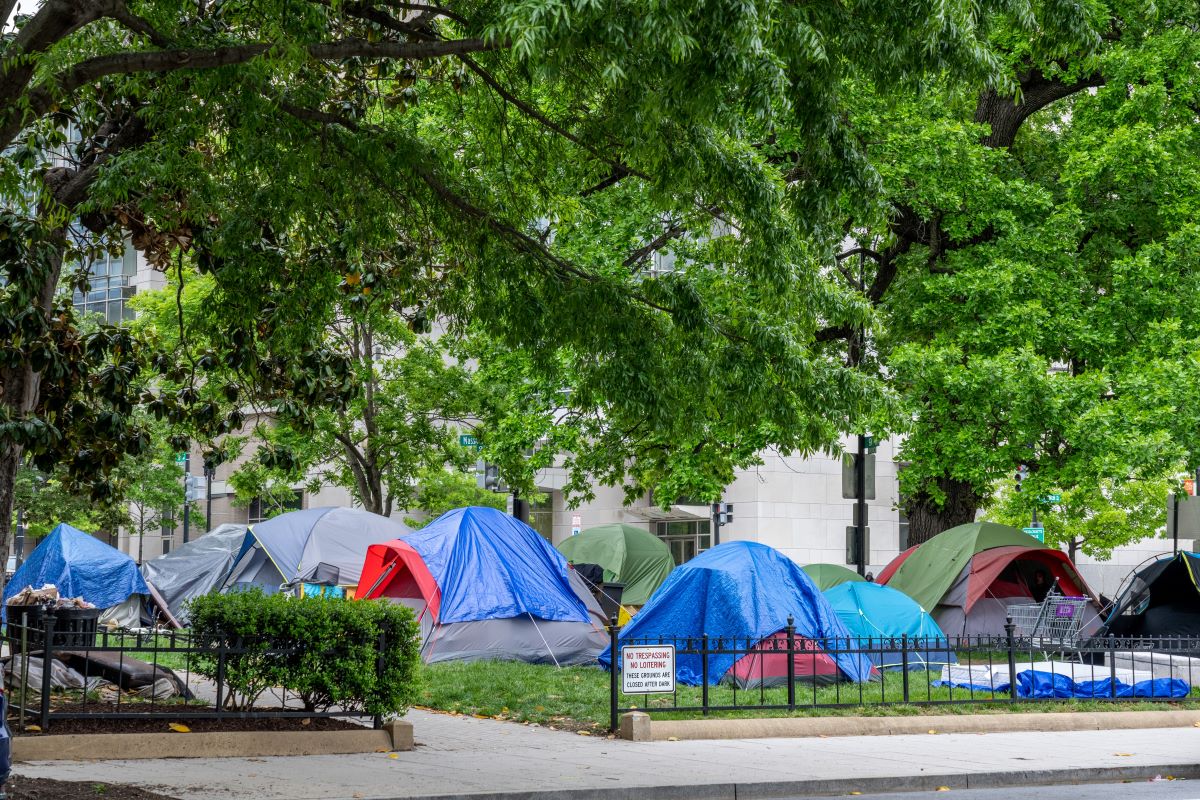As decriminalization director Will Knight once aptly explained, criminalizing homelessness has a long and harrowed history in the United States of America. While forcing people to sleep in places unfit for human habitation should definitely be considered a crime, it is the people who are enduring it rather than those endorsing it who keep winding up behind bars.
This reality was much harsher before 2018 because, just a handful of years ago, homeless people could be cited, fined, or arrested for violating “quality-of-life ordinances” regardless of their circumstances. This means that a homeless person could legally receive a citation for performing any of the following life-sustaining activities in public:
- Sitting
- Standing
- Lying down
- Storing their possessions
- Soliciting pedestrians
- Camping
- Resting
- Sleeping in vehicles, etc.
While these unjust legalities still apply, a groundbreaking court case known informally as Martin v. Boise made one slight adjustment.
According to the court ruling, laws that target houseless people for imprisonment can only be enforced if a pivotal condition is met. That condition requires state governments to have enough shelter beds available before issuing any citations.
While this may seem like a minuscule detail in the books, it poses a massive obstacle for municipalities because it forces them to:
- Respect a right given almost exclusively to homeless people
- Provide enough shelter beds in their communities
- Decrease the number of citations issued to unsheltered individuals
Municipalities harbor a lot of hatred towards their unhoused neighbors. This much is evidenced by their ongoing (notedly failed) efforts to overturn the Martin v. Boise ruling.
As each attempt to overturn it proves more futile than the last, the climate has shifted. The latest political tactics seek to get around the ruling instead.
There Has Been a Subtle Political Shift Toward State-Sanctioned Encampments
Data provided by the Urban Institute projects that the United States spends $31,065 per year per homeless person in their efforts to remove, relocate, or otherwise destroy homeless encampments. That’s a hefty price tag once you consider that millions of people endure homelessness every year nationwide.
To put things into perspective, the US Interagency Council on Homelessness projects that major cities spend an average of between $3 million and $8.5 million annually responding to encampments with action from law enforcement officials. These numbers are estimates from four cities: Chicago, Houston, Tacoma, and San Jose.
On the low end, Houston spent about $3,393,000 criminalizing homelessness, while San Jose, on the high end, shelled out a $8,557,000 that same year. Other cities report much higher costs. Los Angeles, for example, spends over $70 million a year of taxpayer money on homeless sweeps.
If you’re wondering what is accomplished from the so-called homeless encampment cleanups, data proves that 95% of the evicted encampment residents wind up back on the streets by nightfall. Of thousands of swept homeless encampment residents, only about three will wind up in permanent housing situations, a number so small it quantifies as negligible. Yet, we are told encampment cleanups are necessary to restore public safety and increase social well-being.
However, in the same breath that politicians use to detail the dangers homeless encampments pose to the public, they now stand behind their podiums in utter praise of encampments.
The catch is they are only supporting encampments that are government sanctioned. As anti-homeless legislation increases, government-sanctioned encampments could technically be classified as “shelters,” making it possible to criminalize homeless people without spending a penny on the problem perpetuating the crisis – a lack of affordable housing.
Experts Warn That Government-Sanctioned Encampments Are Not a Viable Replacement for Affordable Homes
The National Low Income Housing Coalition’s Sr. Policy Analyst, Alayna Calabro, explained the predicament in an exclusive statement issued to Invisible People.
“Without access to permanent, quality, affordable housing or safe, sanitary, dignified shelter, people experiencing homelessness often find support, safety, and community by living together in encampments,” Calabro said.
“Encampments are a detrimental but predictable outcome of our country’s inadequate supply of affordable rental housing and permanent supportive housing for those who experience chronic homelessness,” Calabro continued. “While sanctioned encampments are preferable to encampment sweeps and forced dispersal – which come with harmful and sometimes deadly consequences – sanctioned encampments are not a solution to homelessness.”
Rather than shifting the problem from street corners to riverbanks, from unsanctioned encampments to state-sanctioned encampments, and so forth, we must shift our attention to long-term solutions. This is the point experts agree on. Calabro detailed that solution below:
“To end homelessness throughout the country, our nation must ensure rental assistance is universally available to all eligible households, build and preserve homes affordable to people with the lowest incomes, and expand voluntary supportive services,” she said.
“Redirecting investments away from long-term solutions, like permanent supportive housing, to fund short-term crisis responses that offer no clear path to exit homelessness undermines effective strategies for ending homelessness,” she continued. “Rather than look for legal loopholes to Martin v. Boise, such as sanctioned encampments, communities should prioritize efforts to immediately connect individuals to safe, stable housing, paired with the supportive services they may need and want.”
Will Knight, currently serving as the Decriminalization Director for the National Homelessness Law Center, echoed those sentiments, adding that technically, sanctioned encampments do not fulfill the legislative requirements.
“Sanctioned encampments are not categorically an adequate alternative to shelter under the language of Martin v Boise and its successor Grants Pass, which has now been reaffirmed by the Ninth Circuit. So, that is well-settled law in the Ninth Circuit,” Knight said.
“Sanctioned encampments — to the extent that they are employed — need to be tailored to the individual needs of the people in the community. They need to be operated from a non-criminological model. Otherwise, they’re little more than forced migration, little more than concentration camps,” he continued.
“In general, I don’t think they’re going to withstand under Martin v. Boise when the time comes for folks to challenge those legally, and they shouldn’t, especially in places like Phoenix where nearly a thousand homeless people die every year of exposure because of the unbearable temperatures outside.”
Contact Your Legislators About Addressing the Affordable Housing Crisis Before It’s Too Late
The statistics are in, and the truth is pretty simple. The primary leading issue perpetuating American homelessness is the lack of affordable housing. The leading cause of this lack of affordable housing is a dwindling and limited supply of affordable homes.
Hundreds of millions of dollars are wasted by addressing the affordable housing crisis with criminalization, an action with a proven track record of failure. Sweeping homeless encampments does nothing to solve the crisis. It merely moves the problem across the street or, in a best-case scenario, to perhaps the other side of town.
Creating government-sanctioned versions of these same encampments is also costly and can be manipulated to perpetuate even more criminalization. This vicious cycle ends when you pick up the phone or get behind your keyboard and urge your legislators to invest in long-term, non-punitive solutions in the form of permanent housing and supportive services.












